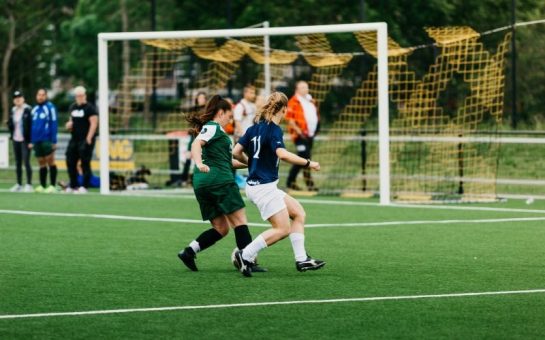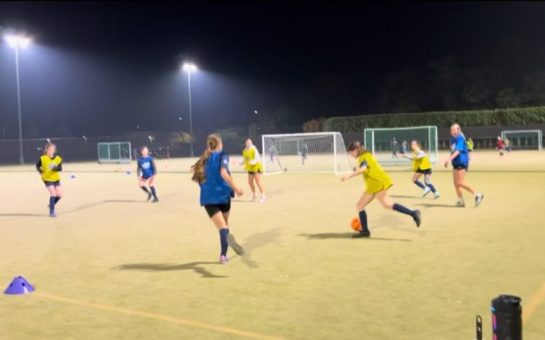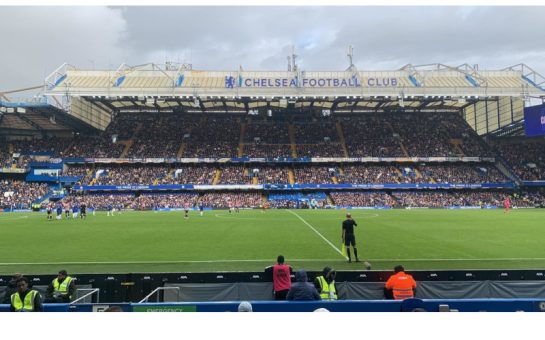By Eli Haidari
July 1 2020, 12.20
Follow @SW_Londoner
Football-related arrests have more than halved over the last decade in England and Wales, according to statistics released by the Home Office.
From the 2009/2010 seasons up until the 2018/2019 campaigns, football-related arrests have declined from 3,391, to 1,381; representing a 59% decrease for supporters of English and Welsh clubs.
Stadium bans across the last ten completed campaigns have also declined by nearly half, with a 46% decrease from 1,025 in 2009/2010, to 549 in 2018/2019.
Director of case work at the Football Supporters Association (FSA), Amanda Jacks, identified changes in approach by police as a key factor in the rapid decline in figures.
She said: “There is a lot of legislation affecting football supporters that isn’t relevant to those who follow other sports, especially relating to alcohol. For example, drinking in view of the pitch and entering a stadium drunk are specific offences.
“In recent years, we’ve seen the police exercising far more discretion when it comes to making arrests. For example, over the 2017/18 season, the arrest rate was just 3.5 per 100,000 attendees, comparing favourably to other large scale public events.”
The Coronavirus pandemic resulted in all football in the UK being suspended over a three month period, and its resumption on June 17 came with the call for all remaining fixtures to be played behind closed doors.
The question as to when football fans can return to the grounds of their beloved team(s) remains unknown; but despite the inevitability of arrests upon reopening clubs’ doors, Mrs Jacks welcomes the fans’ awaited return and understands the essential role that they play within the sport.
She noted: “There is more to being a supporter than 90 minutes of football, and fans will have missed the social side of supporting their games, seeing friends and acquaintances every bit as much as actually supporting their teams.
“We see no dangerous impact whatsoever of enforced time away from the game. In fact, many supporter groups have been active in their communities during lockdown, especially supporting foodbanks.”
Over the 10-year period of the 2009/2010-2018/2019 seasons, the Premier League accounted for 1,886 of total banning orders whilst the Championship contributed a further 1,536.
Public disorder, alcohol offences and violent disorder accounted for the three highest arrest offence-types over this time; but, each have gradually been becoming less and less frequent.
Public disorder, the highest committed offence type, saw the 1,226 arrests made in the 2009/2010 seasons fall to only 601 arrests over the 2018/2019 seasons; declining by more than half at 51%.
The FSA’s ‘Watching Football is not a Crime’ campaign works with the police to try and persuade them away from punitive outcomes and criminalising younger fans in particular.
Educational courses have also been tailored for age groups as an alternative to prosecutions, where younger fans have had the opportunity to instead partake in sessions designed to change their outlook and behaviour. These have undoubtedly played a key role in combatting the decline in fan violence figures.
The FSA’s ‘Fans for Diversity’ campaign is also working to bring together supporters and reduce football-related offences.
Arrests for racist and indecent chanting decreased by 61% when comparing the 36 arrests over the 2009/2010 seasons, to the 14 arrests over the 2018/2019 campaigns.
This decrease however, is inconsistent across the ten years; and the FSA, in conjunction with a number of other fan bodies, will continue to provide educational platforms to tackle this.
Commenting on what needs to be done to prevent ongoing fan violence, Mrs Jacks added: “We must continue to stress the importance of early intervention work by both police and clubs, which will prevent anti-social behavior escalating into anything more serious.”
For more information, the Home Office carries out annual findings on football related arrests and banning orders in order to aid governments policy making, help resource allocation, and keep the public informed on police activity and the state of the football environment.
The collection of annual findings can be visited here.




